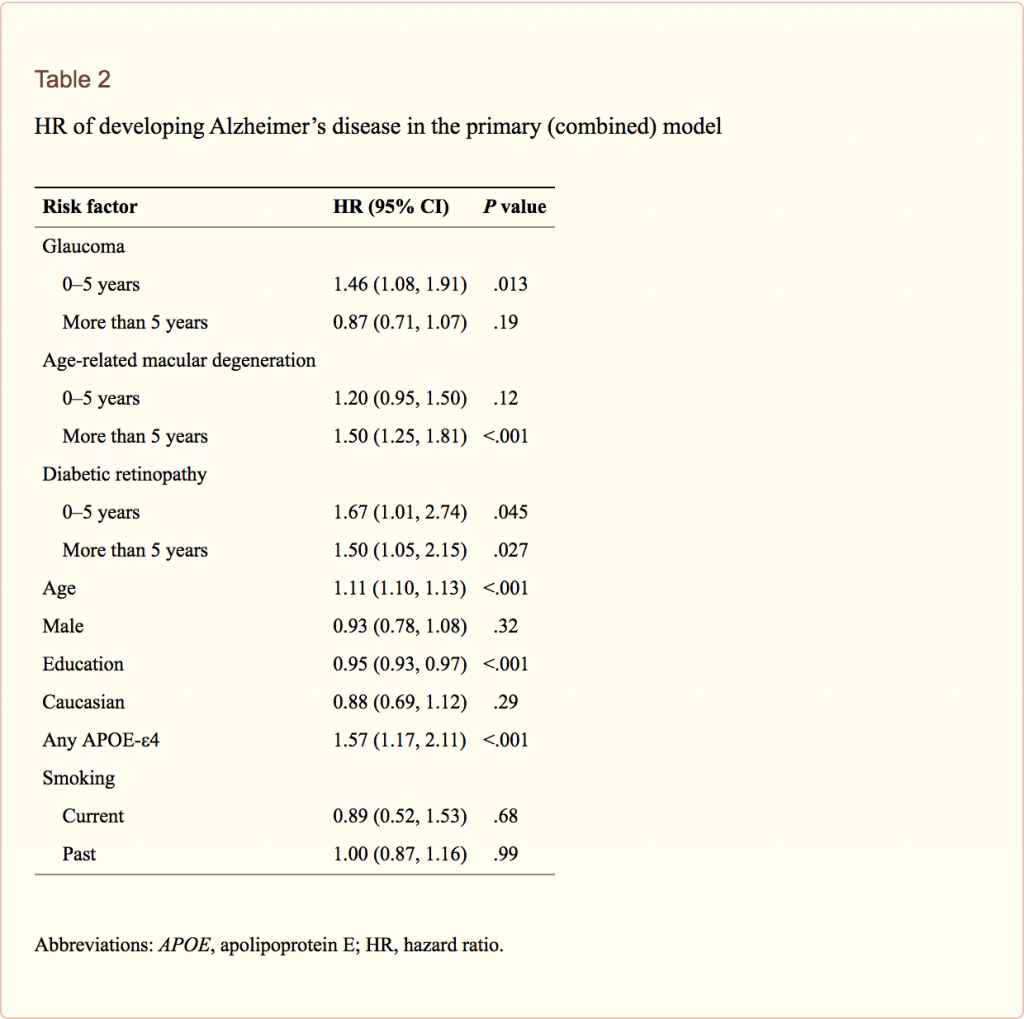Alzheimer's disease affects millions of adults and is the most common type of dementia. Identifying risk factors for Alzheimer's may lead to early detection and preventive measures that are based on a better understanding of the disease processes involved. The eye provides substantial information on brain health, and may give some clues to the pathogenesis of Alzheimer's disease. Eye conditions such as glaucoma, age-related macular degeneration, and diabetic retinopathy have some shared characteristics with Alzheimer's disease, such as progressive neurodegeneration, characteristic amyloid beta deposits, and microvascular disease. This study aimed to investigate potential associations between four eye conditions (glaucoma, age-related macular degeneration, diabetic retinopathy, and cataract) with Alzheimer's disease in a large cohort of patients.
We analyzed a large population of older patients (>5400) over multiple years, during which time there were nearly 800 new cases Alzheimer's disease diagnosed in the population. We found that a recent (within 5 years) diagnosis of glaucoma, an established diagnosis of age-related macular degeneration, and a recent or established diagnosis of diabetic retinopathy were independently associated with risk of developing Alzheimer's disease. Cataract diagnosis was not associated with Alzheimer's disease.

These results were not surprising, given some of the similarities between glaucoma, age-related macular degeneration, and diabetic retinopathy with Alzheimer's disease. Since cataract is a disease of the lens, we did not expect to find an association with Alzheimer's. Several factors suggest the effects we found are specific to these ophthalmic conditions and not merely age-related phenomena. We controlled finely for age by using age as our time axis and by including terms for age at entry. We also included separate terms for recent vs. established condition, and the pattern of findings was not consistent across conditions, and we did not find increased risk associated with cataract, which is highly age-related.
Our results have several implications for patients care and future avenues of investigation. Caregivers and health-care workers should facilitate adequate ophthalmic care for older individuals at risk of dementia, and eye care providers should be aware of increased risk for Alzheimer's disease in certain ophthalmic conditions. Subsequent studies of ophthalmic diseases and their relationship to Alzheimer's disease may provide important insights in their shared pathological pathways, thus enabling better techniques for prevention and treatment.
Lee CS, Larson EB, Gibbons LE, Lee AY, McCurry SM, Bowen JD, McCormick WC, Crane PK. Associations between recent and established ophthalmic conditions and risk of Alzheimer's disease. Alzheimers Dement. 2019 Jan;15(1):34-41. doi: 10.1016/j.jalz.2018.06.2856. Epub 2018 Aug 8. PubMed PMID: 30098888; PubMed Central PMCID: PMC6333518.
